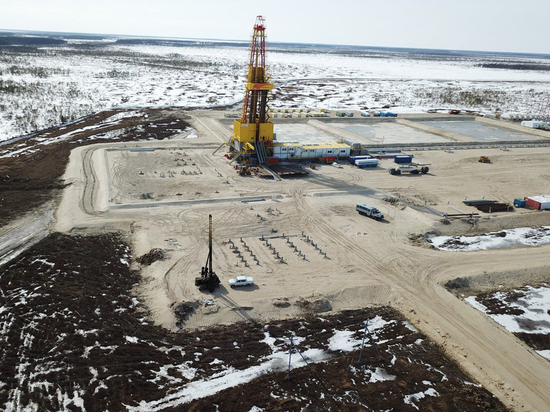Russia cancels discount on export oil
[ad_1]

The new law should reduce budget losses from the sale of energy resources
On April 1, Russia begins an active struggle to increase the cost of export oil. Due to Western sanctions that limited the supply of oil from our country to the European market, domestic producers had to urgently reorient their sales in the Asian direction, while offering significant price breaks to local buyers. The new law that comes into force should reduce the financially detrimental discount to a minimum. True, experts are not sure that the new regulatory mechanism will quickly reduce budget losses from the reduction in raw material revenues.
The meaning of the new legislative mechanism coming into force on April 1 is as follows. To calculate the fiscal payments received by the treasury from the foreign sale of energy resources, the quotes of the main Russian grade Urals will be finally tied to the benchmark Brent brand and a gradual reduction of the discount to its price will be provided: in April, discounts will not exceed $34 per barrel, in May – $31, and from July — $25. Thus, as the authors of the innovation believe, the Russian export barrel will gradually reach the level of $70 per barrel, which will correspond to the parameters reflected in the budget.
Recall that back in early March, the Ministry of Finance complained that in annual terms, the cost of Urals almost halved: if in February 2022 a “barrel” of Russian raw materials could fetch $92, which was close to Brent quotes, then twelve months later the difference between prices of two marks reached two marks reached $30. A barrel of North Sea brand costs about $80, and our oil – $50-55. As a result, by the beginning of March, the federal budget deficit of Russia exceeded 3 trillion rubles, which was largely due to a decrease in export earnings of the oil and gas sector.
The drop in foreign revenue was forced. Domestic producers had to sell raw materials at half price just to keep stable foreign importers. In the spring, the situation changed for the better – the discount decreased by an average of $8 per barrel. According to Deputy Prime Minister Alexander Novak, this was the result of Moscow’s decision to voluntarily reduce the daily production of raw materials by 500 thousand barrels, first approved only for March, and then extended until mid-summer. The law on the monthly limitation of discounts, which comes into force on April 1, promises to eventually bring Urals quotes closer to the market value of Brent. “Establishing logistics chains and transport supplies will be one of the key factors in strengthening the emerging trend,” the Deputy Prime Minister is sure.
According to Artem Tuzov, director of the corporate finance department at IVA Partners Investment Company, the real cost of Urals, at which the new main Russian importers – China and India – buy “black gold” is not disclosed. Bloomberg reports that in the first months of 2023, the average price of export “black gold” from our country reached $74 per barrel, and due to “understated” quotations, domestic officials allegedly tried to confuse Western departments so as not to reveal the real amounts of payment for hydrocarbons, transactions on which are carried out through offshore harbors of third countries.
According to the Finnish Center for Energy and Clean Air Research, whose opinion is now highly valued in the European community, the price of Urals rose by 10% by the end of March to $55 per barrel. At the same time, Brent quotes, on the contrary, fell, and the discount on Russian energy products decreased from $30 to $20-25.
“The domestic mining sector is gradually adapting to the sanctions and the discount to Asian clients is gradually decreasing,” says Artem Deev, head of the analytical department at AMarkets. However, analysts predict that the measures implemented by the Russian government are unlikely to return the cost difference between Urals and Brent to the previous values of $2-3 per barrel. The reduction in production leads to a decrease in foreign supplies. According to the International Energy Agency, at the end of winter, Russian oil exports fell by 570,000 barrels per day (to 7.5 million barrels). Even at prices of $50-55, the revenue of domestic mining holdings is declining by about $30 million per day (more than $900 million per month). It is easy to calculate that our companies may lose more than $10 billion in a year.
Meanwhile, by introducing a new law, the government is making it clear to oilmen that in the future, exporters will have to take better care of their income. With the help of high discounts, Russian raw materials were bought up like “hot cakes”, but if the discount is cut, producers will have to “bend” foreign consumers, winning back every extra dollar per barrel.
[ad_2]
Source link






